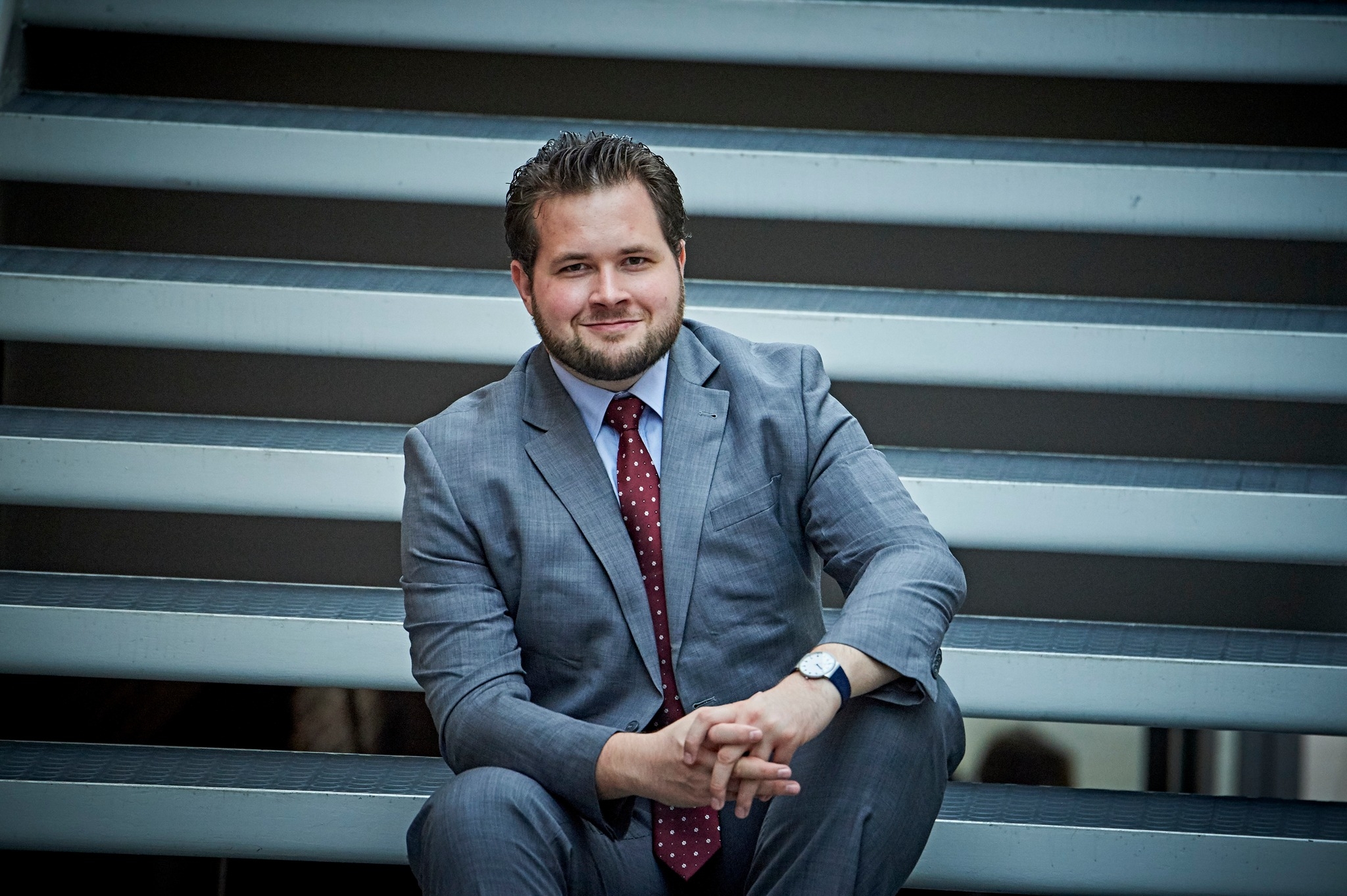Remix News sat down with Danish MEP Anders Vistisen at CPAC Hungary last week to take a deep dive into the immigration policy proposed by his conservative Danish People’s Party, as well as question him on the current political landscape in Denmark.
The 35-year-old lawmaker has been with the party for over a decade, having previously been the national chairman of the party’s youth section, and is currently its spokesperson for foreign affairs.
Vistisen is no novice to the Conservative Political Action Conference, having attended the event in Washington on five previous occasions.
First, he was extremely complimentary about the “lovely city” of Budapest and thoroughly recommended it for people who haven’t been. He expressed similarities between Hungary and Denmark. Both have been historically “great kingdoms that have lost a lot of territory,” he noted, adding that both are also “relatively small but quite homogeneous national states.”
Asked for his views on Denmark’s current left-wing government and its more socially conservative approach to immigration, as well as whether or not the current administration deserves praise, Vistisen replied:
For a Western European country, Denmark certainly has the most strict regulation of illegal migration. It’s worth remembering, it’s quite easy to get in as a legal migrant. Our numbers are comparable for instance to a country like Canada when you’re looking into legal migration.
For EU countries it’s quite easy, but you also have what I think in the U.S. would be called green card or blue card models — that if you have relevant experience, education, and language, then you can come and work quite easily. So the numbers are quite similar to other Western countries. What we are focused on is the illegal part of migration, and also to direct the migration away from unqualified migration from the Middle East and North Africa to highly qualified migration from North America, Australia, and Asia. So that is the primary shift in my Danish migration policies over the years.
This focus on favoring highly skilled migrants being offered work permits over unskilled mass migration has been a longstanding policy of the Danish People’s Party since its formation in 1995, Vistisen explained.
The Danish lawmaker said the party’s immigration policy is what primarily helped it become the third-largest party in the Danish parliament in 2001, which resulted in the party supporting a liberal-conservative coalition government on the proviso that (former) Prime Minister Anders Fogh Rasmussen’s administration adopted its restrictive immigration measures.
The Danish people wanted a tougher line on illegal migration. They wanted control over the borders, and they wanted to have less low-qualified and culturally very difficult immigration, especially coming from Turkey, North Africa, and the Middle East.
He said the rival Social Democrats soon identified that the topic of immigration was a vote winner and began supporting stricter migration policies.
You can say that all the Danish parties, even from the former Communist Socialist People’s Party and all the way to the Danish People’s Party, support a similar line on migration. The defining line today in Denmark is whether you believe that you can solve the migration question within the confinement of the international conventions that we have signed, especially the European Convention on Human Rights, which gives migrants a lot of rights on, for instance, the right to family life, where you cannot expel these criminal elements in society with foreign origin because they have a theoretical right to family life. It’s also the convention on stateless people that prevents us from, for instance, combating illegal migration by Palestinians. And it’s to a certain extent, the U.N. Convention for Refugees that gives fundamental rights to apply for asylum, even when it’s clear that you come from a safe place.
Vistisen said the issue of asylum shopping, where an individual will pick and choose a favored destination to claim asylum due to the country having the best benefits or the highest living standards, is one area Denmark, as an attractive proposition for many, needs to address.
That is what we need to fundamentally stop, and we have suggested what is called the Australian model, basically a pushback model, where if you come illegally, you can get protection if you need protection, but you don’t enter into Danish society, you get protection in a safe third country. That is where the division line is today in migration policy: whether you think you can solve this within the scope of the current legal framework in international conventions or whether you think that scope needs to be adjusted, or to some extent, that Denmark has to leave some of these obligations.
When asked more specifically about legal migration, Vistisen spoke about the issue that Denmark and many other rich Western European nations had during the first decade of accession to the European Union of less affluent Eastern European nations; he suggested there should have been a waiting period for new member states to adopt the free movement principles until the wage gap was more proportionate.
The wage gap simply perverted the Danish job market to a certain extent. It’s not so predominant today because there has been a very high rise in living standards across Europe. So it becomes less and less of a problem.
Vistisen explained that for legal migration from outside the European Union, his party is supportive of what he describes as the “blue card and green card models.” One relates solely to wage, where a foreign national will be granted permission to work in Denmark should they be offered a high-income position above a certain threshold.
If our big companies are in need of qualified work power, then they can go out and recruit that from the international offices or from international recruitment.
The other relates to a points-based system where prospective migrants attain points for language skills and qualifications, and the number of points needed is proportionate to the number of vacancies in any specific field.
When asked whether the Danish lawmaker could imagine Denmark as a minority ethnic Danish population with highly qualified legal immigration from India and Asia, Vistisen replied: “No, I couldn’t.”
When asked, “So where do you draw a line?” the lawmaker responded:
Basically, what we are seeing is how it’s functioning, how many are coming. And the difference also with these highly qualified people that are coming in is that they are also leaving after being recruited. As long as the numbers are what they are, and we see that they assimilate very willingly into society, it’s not a big problem for us.
He explained that the Danish Bureau of Statistics has been compiling stats to score prospective migrants based on the crime rate, unemployment level, and access to welfare in their country of origin.
What we see is that migrants from South America, North America and Asia, generally speaking, have a lower crime rate than the Arab population, and they have a higher job rate. And if they decide to stay longer than just for a job vacancy, then they quite quickly marry into Danish society, which is not a big problem. That is in very large contrast to what we have been seeing from our Turkish migrant community; they marry within the same cultural circle, they prefer to marry from the area of the village they come from. That means that even the second, third, and fourth generations of these migrants are less integrated into society than the first generation. So, for us, it’s very much a question about the cultural capability to integrate into society, and we’re seeing certain cultures do it fairly easily and don’t really create a lot of tension. For instance, we have a small Vietnamese community from the Vietnam War, and the same with the Koreans, who have never created any problems within Danish society.
The key problem with assimilation into Danish society is in relation to migrants originating from Africa and the Middle East, Vistisen said. He described a “cultural incapability” to integrate into society and spoke of migrant “ghettos” where arrivals “stay within the same ethnic group” and “disrespect Danish society, its norms and its rules.”
Asked for his thoughts on Denmark’s southern neighbor, Germany, which has long had a far more liberal policy in favor of mass migration, the Danish lawmaker claimed that Germany is always overcompensating to make amends for the legacy of the Second World War.
The German thinking is that they need to be better than the rest of us. They need to be more cultural, they need to be more progressive than everyone else because of their history. And that’s why you cannot speak common sense in Germany about migration, even when some of these migrants have similar ideas to the fascists when it comes to Jews or when it comes to women’s rights or whatever. It’s impossible to have a proper debate on migration without referring back to the Nazi time. I actually, to some degree, think Germany has the same problem that Sweden has, unlike say Denmark, Norway and Finland which have quite restrictive measures on migration.
Remix News asked Vistisen whether there was real difference in his party’s stance on immigration and that of the Social Democrats, a conclusion he accepted to an extent but added that his party remains stoic in its migration policy in the face of opposition from Brussels, while the Social Democrats cave.
The Social Democrats say they want to keep the border controls but when the European Union says, ‘You cannot do that,’ they scale it back. So, that’s the difference. The rhetoric is quite alive, but when it gets down to the actual implementation of the policies, they lack the will to do what the people want.
Lastly, Remix News highlighted the demise in vote share enjoyed by the Danish People’s Party in recent times, and asked Vistisen why he thinks this is and how the party can win back votes.
I think there are multiple explanations. One of them, of course, is that we went through a period of internal turmoil and voters always react badly to parties fighting among themselves. That’s the good thing about becoming a smaller party, there are fewer people to argue with. So now we don’t do that anymore. The other thing is that other parties have moved in on our core products, so our hard migration policy. To a certain extent that has worked, and I think only now, more and more people are becoming aware that there is a difference between having the right rhetoric and doing the right things when you are in power. I think that is part of how we grow again, and we are glad to say that we are well on the way. We can all agree that it’s good to have a good migration policy, but if you don’t implement it, then it’s not worth anything.






